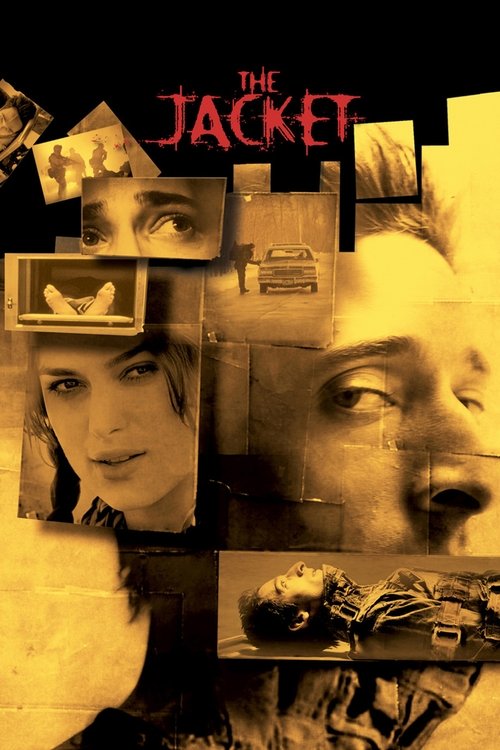
Title: The Jacket
Year: 2005
Director: John Maybury
Writer: Massy Tadjedin
Cast: Adrien Brody (Jack Starks),
Keira Knightley (Jackie Price),
Kris Kristofferson (Dr. Thomas Becker),
Jennifer Jason Leigh (Dr. Beth Lorenson),
Kelly Lynch (Jean Price),
Runtime: 103 min.
Synopsis: A military veteran goes on a journey into the future, where he can foresee his death and is left with questions that could save his life and those he loves.
Rating: 6.866/10
Echoes in the Mind’s Labyrinth: Unraveling The Jacket’s Temporal Tapestry
/10
Posted on July 15, 2025
In The Jacket (2005), director John Maybury weaves a haunting, cerebral tapestry that entwines psychological thriller with metaphysical inquiry, creating a film that lingers like a half-remembered dream. The story follows Jack Starks (Adrien Brody), a Gulf War veteran ensnared in a Kafkaesque nightmare after being wrongfully institutionalized for murder. Through a radical psychiatric treatment involving sensory deprivation and a straitjacket, Jack experiences temporal dislocations, slipping into a future where he grapples with his own mortality and seeks redemption. Maybury’s direction is the film’s pulsing heart, deftly balancing claustrophobic dread with ethereal ambiguity. His visual language fractured, grainy, and steeped in cold blues mirrors Jack’s splintered psyche, making every frame a descent into existential vertigo.
Adrien Brody’s performance is a quiet revelation. His gaunt, soulful eyes convey a man both shattered and resolute, grounding the film’s speculative leaps in raw human vulnerability. Keira Knightley, as the enigmatic Jackie, offers a poignant counterpoint, though her role feels underwritten, a missed opportunity for deeper emotional resonance. The screenplay, penned by Massy Tadjedin, is ambitious but occasionally stumbles, particularly in its third act, where narrative threads fray under the weight of metaphysical convolution. Yet, its willingness to embrace ambiguity over tidy resolution is admirable, inviting viewers to wrestle with questions of fate, memory, and agency.
Cinematographer Peter Deming deserves praise for crafting a visual dichotomy between the sterile, oppressive asylum and the dreamlike warmth of Jack’s future visions. The interplay of light and shadow becomes a narrative device, underscoring the tension between confinement and liberation. Brian Eno’s minimalist score, with its eerie, pulsating drones, amplifies the film’s unsettling atmosphere, though it occasionally risks overpowering subtler moments. The Vermont asylum setting, with its decaying grandeur, serves as more than a backdrop it’s a character, its peeling walls echoing Jack’s unraveling mind.
Where The Jacket falters is in its pacing, which can feel uneven, particularly when the time-travel mechanics strain credulity. The film demands patience, and some viewers may find its deliberate tempo frustrating. Yet, its refusal to spoon-feed answers elevates it above conventional thrillers. Maybury’s creation is a bold meditation on trauma and transcendence, a film that doesn’t merely entertain but provokes, leaving viewers to ponder the fragile threads binding past, present, and future.
0
0
